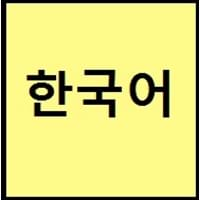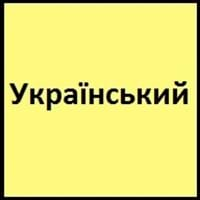Countries
China, Jilin Province, North Korea, South Korea, Yanbian
Ukraine
National Language
North Korea, South Korea
Ukraine
Second Language
Not spoken in any of the countries
Not spoken in any of the countries
Speaking Continents
Asia
Europe
Minority Language
Japan, People's Republic of China, Russia, United States of America
Bosnia and Herzegovina, Croatia, Czech Republic, Hungary, Moldova, Poland, Romania, Russia, Serbia
Regulated By
The National Institute of the Korean Language
National Academy of Sciences of Ukraine: Institute for the Ukrainian Language
Interesting Facts
- Korean has borrowed words from English and Chinese.
- Korean has two counting systems. First, is based on Chinese characters and numbers are similar to Chinese numbers, and second counting system is from words unique to Korea.
- Ukrainian Language is second most widespread among the Slavic languages after the Russian Language.
- Ukrainian Language is among the top three most melodious language in the world.
Similar To
Chinese and Japanese languages
Russian and Belarusian Languages
Derived From
Not Available
Not Available
Alphabets in
Korean-Alphabets.jpg#200
Ukrainian-Alphabets.jpg#200
Scripts
Hangul
Cyrillic, Ukrainian Braille
Writing Direction
Left-To-Right, Horizontal, Top-To-Bottom
Not Available
Hello
안녕하세요. (annyeonghaseyo.)
Здравствуйте (Zdravstvuyte)
Thank You
감사합니다 (gamsahabnida)
Дякую (Dyakuyu)
How Are You?
어떻게 지내세요? (eotteohge jinaeseyo?)
Як ти поживаєш? (Jak ty požyvajesh?)
Good Night
안녕히 주무세요 (annyeonghi jumuseyo)
На добраніч (Na dobranič)
Good Evening
안녕하세요 (annyeonghaseyo.)
Доброго вечора (Dobroho večora)
Good Afternoon
안녕하십니까 (annyeong hashimnikka)
Доброго дня (Dobroho dnia)
Good Morning
안녕히 주무셨어요 (An-yŏng-hi ju-mu-shŏ-ssŏ-yo)
Доброго ранку! (Dobroho ranku)
Please
하십시오 (hasibsio)
будь ласк
Sorry
죄송합니다 (joesonghabnida)
вибачте (vybachte)
Bye
안녕 (annyeong)
до побачення (do pobachennya)
I Love You
당신을 사랑합니다 (dangsin-eul salanghabnida)
я тебе люблю (ya tebe lyublyu)
Excuse Me
실례합니다 (sillyehabnida)
Перепрошую! (Pereprošuju)
Where They Speak
South Korea
North Odessa Oblast, South Khmelnytskyi, South Vinnytsia
How Many People Speak
Not Available
Dialect 2
Gyeongsang
Volynian
Where They Speak
South Korea
Rivne, Volyn
How Many People Speak
Not Available
Dialect 3
Hamgyŏng
Steppe
Where They Speak
China, North Korea
South Ukraine, Southeastern Ukraine
Native Name
한국어 (조선말)
Українська (Ukrajins'ka)
Alternative Names
Hanguk Mal, Hanguk Uh
Not Available
French Name
coréen
ukrainien
German Name
Koreanisch
Ukrainisch
Pronunciation
Not Available
[ukrɑˈjiɲsʲkɐ ˈmɔwɐ]
Ethnicity
Koreans
Ukrainians
Origin
Before 1st century
1561
Language Family
Koreanic Family
Indo-European Family
Subgroup
Not Available
Slavic
Branch
Not Available
Eastern
Early Forms
Old Korean, Middle Korean and Korean
Old East Slavic, Ukrainian
Standard Forms
Pluricentric Standard Korean, South Korean standard and North Korean standard
Modern Ukrainian
Signed Forms
Korean Sign Language
Ukrainian Sign Language
Scope
Individual
Individual
ISO 639 6
Not Available
Not Available
Glottocode
kore1280
ukra1253
Linguasphere
45-AAA
53-AAA-eda to 53-AAA-edq
Language Type
Living
Living
Language Linguistic Typology
Subject-Object-Verb
Subject-Verb-Object
Language Morphological Typology
Agglutinative
Fusional, Synthetic
Korean and Ukrainian Greetings
People around the world use different languages to interact with each other. Even if we cannot communicate fluently in any language, it will always be beneficial to know about some of the common greetings or phrases from that language. This is where Korean and Ukrainian greetings helps you to understand basic phrases in Korean and Ukrainian language. Korean word for "Hello" is 안녕하세요. (annyeonghaseyo.) or Ukrainian word for "Thank You" is Дякую (Dyakuyu). Find more of such common Korean Greetings and Ukrainian Greetings. These greetings will help you to be more confident when conversing with natives that speak these languages.
Korean vs Ukrainian Difficulty
The Korean vs Ukrainian difficulty level basically depends on the number of Korean Alphabets and Ukrainian Alphabets. Also the number of vowels and consonants in the language plays an important role in deciding the difficulty level of that language. The important points to be considered when we compare Korean and Ukrainian are the origin, speaking countries, language family, different greetings, speaking population of these languages. Want to know in Korean and Ukrainian, which language is harder to learn? Time required to learn Korean is 88 weeks while to learn Ukrainian time required is 44 weeks.





